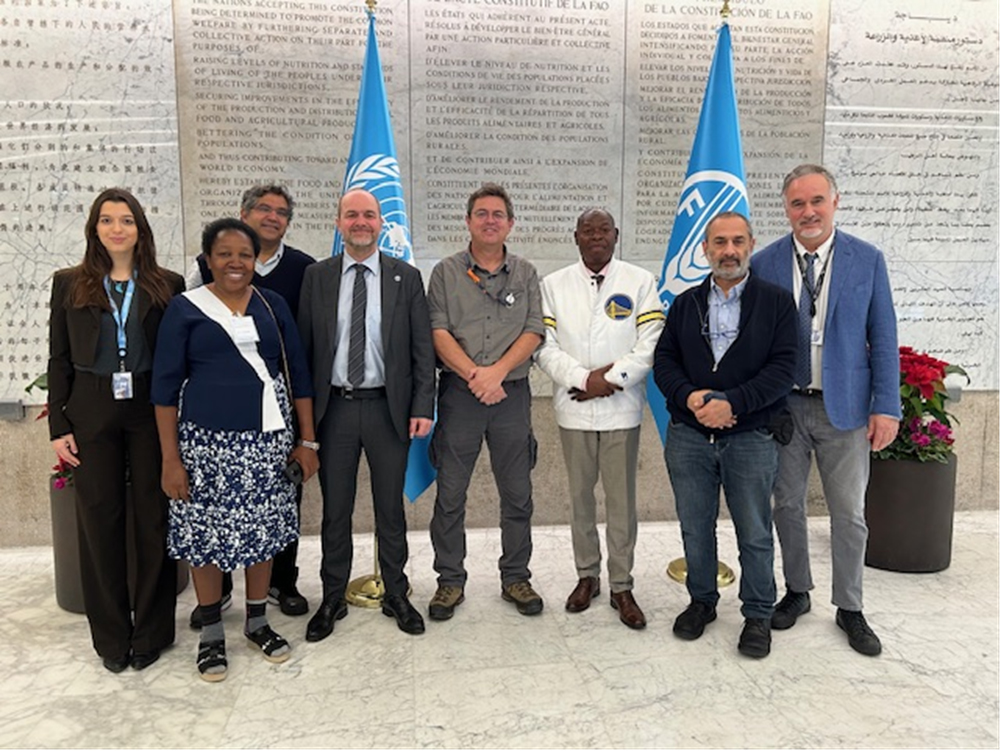Strengthening sustainable fisheries on Lake Tanganyika together

13 February 2024, Rome – The Food and Agriculture Organization of the United Nations (FAO) and the Lake Tanganyika Authority (LTA) met in Rome to discuss collaboration on sustainable exploitation and utilization of Lake Tanganyika’s fisheries resources. Talks focused on fish stock assessment methods and support through the FISH4ACP and PROFISHBLUE programmes.
"FAO stands ready to assist LTA in promoting sustainable management of Lake Tanganyika’s fisheries," said Manuel Barange, Assistant Director-General and Director of the Fisheries and Aquaculture Division, opening the meeting. He added: “We welcome this opportunity to strengthen our cooperation on conservation of the lake’s resources and on fisheries management measures.”
“One of our priorities is to ensure that fish stocks are healthy and adequately managed to sustain future exploitation”, said Sylvain Tusanga, Executive Director of the Lake Tanganyika Authority, adding: "We look forward to advancing sustainable fisheries on Lake Tanganyika together."
Lake Tanganyika is the deepest lake in Africa and holds the greatest volume of fresh water on the continent. The lake is shared among four countries—Tanzania, the Democratic Republic of the Congo (DRC), Burundi, and Zambia – and provides millions of people with a source of food and income.
 |
| LTA and FAO experts |
During the two-day meeting from 5-6 February, LTA and FAO experts explored areas of collaboration on technical issues related to fisheries management, including fish stock assessment methods. They agreed on the need for a lake-wide fish stock assessment to update the knowledge of the last exercise from 2011.
FISH4ACP, an initiative of the Organization of African, Caribbean and Pacific States, is working with the Tanzania Fisheries Research Institute (TAFIRI) on the development of an electronic catch assessment survey (eCAS) to collect and collate fisheries information.
In Zambia, the initiative which is implemented by FAO with funding from the European Union (EU) and the German Federal Ministry for Economic Cooperation and Development (BMZ), is supporting authorities to reinforce monitoring, control and surveillance capacities and equipment.
Together with PROFISHBLUE (Program for Improving Fisheries Governance and Blue Economy Trade Corridors), covering 16 countries in the Southern African Development Community, and other partners such as Nature Conservancy and governments concerned, FISH4ACP conducted a preliminary study to help plan the lake-wide fish stock assessment in 2023.
Follow-up discussions are scheduled in May 2024 with the participation of all riparian countries during the second FISH4ACP Stock Assessment Action Plan Workshop in Tanzania.
